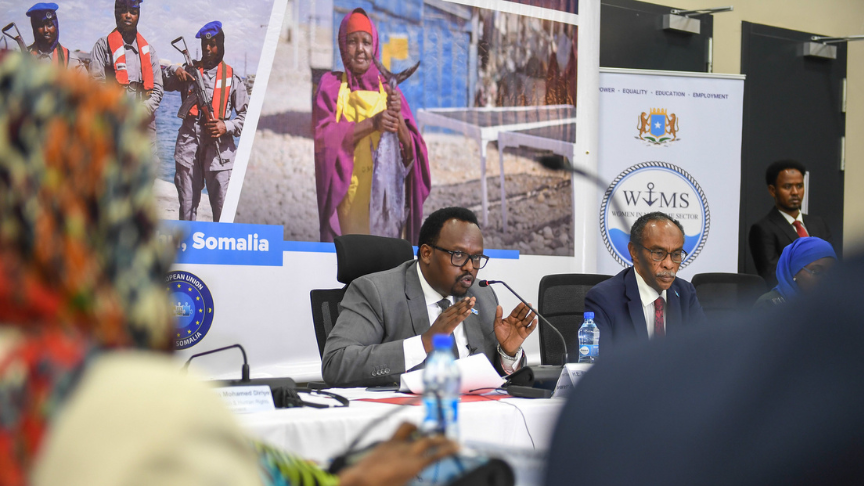Somalia boosts blue economy policy
23 February 2023
Several government ministries and foreign partners will collaborate to improve Somalia's maritime domain enforcement to prevent IUU fishing, including the support from the international community for capacity building and port security. Despite this foresight, onshore security remains weak, and the government must secure crucial districts in the south while also strengthening security in Mogadishu.
By Dr. Guy Wilson-Roberts, Head of Intelligence Analysis
The federal government of Somalia in February launched its Women in Maritime Sector (WiMS) National Action Plan, part of its wider drive towards a comprehensive plan for building Somalia’s so-called Blue Economy in its maritime domain. “The Blue Economy that we want to exploit includes fisheries from our waters and all the goods that pass through it... In order to succeed in this venture, we need to empower women across the whole value chain,” Somalia’s Deputy Prime Minister, Salah Ahmed Jama, said in his speech.
The overall approach will involve a number of government ministries and international partners, with part of the focus being on improving Somalia’s ability to enforce its maritime domain to prevent IUU fishing. This shift to a broader focus on its coastline and offshore area comes at a time of improving security. The international community has supported capacity building, and this has included training and vessels for Somalia’s maritime police as well as port security in ports such as Mogadishu, Bosaso and Berbera – not to mention the opening of a new port in Garacad in 2022. As well, the reduction in piracy offshore has been reflected in the removal of the shipping industry high-risk area designation for the Somali Basin and Gulf of Aden from 1 January 2023.
Despite this forward-looking and progressive approach, and international support, the security situation onshore remains at a critical point. The government’s military actions against militant group al-Shabab have had some short-term successes. It remains unclear, however, whether there can be a permanent solution; the government needs to be able to secure critical areas in the south to prevent al-Shabab from occupying territory and – crucially – from raising funds through local taxation. As well, security needs to be improved in Mogadishu: there have been six IED attacks reported in the capital so far in February.
Also, Somalia’s federal structure contains unresolved conflicts. Military forces from Somaliland – one of Somalia’s provinces with its own (and often independent minded) government – have been fighting militia forces in the Sool-Sanag-Cayn area between Somaliland and Puntland after local clan leaders expressed their desire to move away from Somaliland’s control. This has been a contested area for years; the Somali government might be forced to intervene, which is problematic given Somaliland’s inclinations for autonomy. Therefore, the gains that the Somali government has made facing outwards – towards its maritime domain – might be undermined by the challenges when facing inwards.
WEBINAR:
The broader Middle East in 2022
What are the implications for the future?
From the maritime deal between Israel and Lebanon to an Iran-linked drone attack in the Indian Ocean: various events in 2022 will have long-term implications for the Eastern Mediterranean, the Red Sea or the Persian Gulf.
Get a recording for Kais Makhlouf’s and Louis Borer’s webinar from 1 March 2023, on the most important developments and key topics that should be monitored in the close future.

